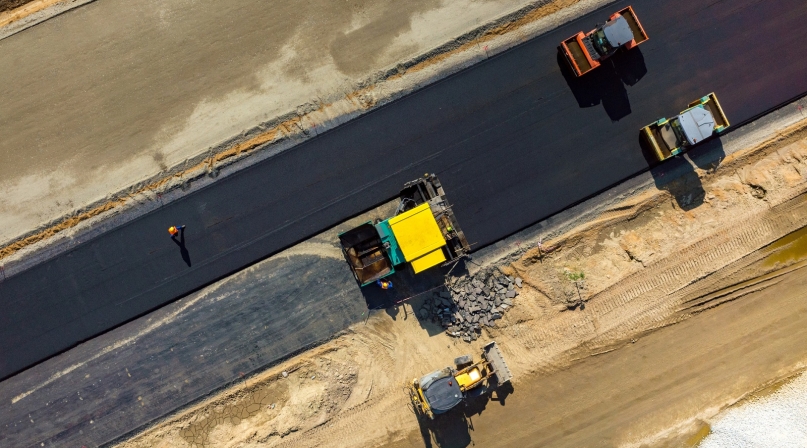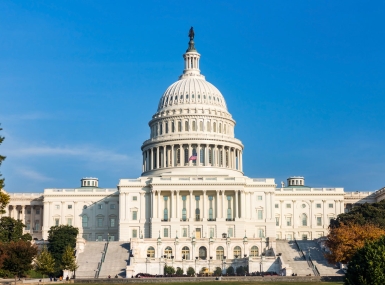Biden and bipartisan group reach compromise on infrastructure
Upcoming Events
Related News

Key Takeaways
President Biden endorsed a compromise June 24 from a bipartisan group of 10 senators, led by Sen. Rob Portman (R-Ohio) and Sen. Kyrsten Sinema (D-Ariz.), that would provide $973 billion over five years, including $579 billion in new spending, for the nation’s physical infrastructure assets, including all modes of transportation, water systems, water storage, power grids and broadband networks.
Significant investments would also be made in improving the resiliency of these assets and remediating environmental contamination sites. The framework includes a list of sources that could be used to generate some of the prescribed new spending, which notably does not include any increases to taxes or transportation user fees.
“We are encouraged that President Biden and lawmakers from both political parties are a step closer to addressing major infrastructure across America,” NACo Executive Director Matt Chase said.
“The framework laid out in the bipartisan compromise on an infrastructure package would help counties rebuild our nation’s infrastructure and economy.”
“Counties play a major role in maintaining critical infrastructure,” he noted. “We own 44 percent of the nation’s road miles and nearly 40 percent of all bridges. We are also involved in the vast majority of public transportation systems and a third of all public airports.”
“We particularly commend the president and bipartisan group of lawmakers for ensuring the next infrastructure package will help to bridge the digital divide, which will increase our economic competitiveness and connect our residents,” Chase said. “Broadband connectivity is more important than ever. Americans in every corner of the country rely on high-speed every day, including at work, school, at medical appointments and more.”
Significant investments would also be made in improving the resiliency of these assets and remediating environmental contamination sites. The framework includes a list of sources that could be used to generate some of the prescribed new spending, which notably does not include any increases to taxes or transportation user fees.
Elements of the Senate’s surface transportation reauthorization, including funding for roads, bridges, rail and safety that have been advanced by their respective committees of jurisdiction would become a part of the final package.
The Senate-passed water resources bill, S. 914, the Drinking Water and Wastewater Infrastructure Act of 2021, would also be included. While lawmakers still need to develop the remaining legislative text, this is a critical first step by Congress to pass a bipartisan infrastructure package that has eluded the immediate predecessors of the current administration.
The framework would be paid for, at least in part, through a variety of tools and mechanisms, including:
- Utilizing American Rescue Plan state and local funds for broadband
- Closing the IRS tax enforcement gap
- Repurposing rejected or unused supplemental COVID-19 unemployment insurance relief funds
- Repurposing unused COVID relief funds from 2020
- Reinstating Superfund fees for chemicals
- Allowing states to buy and sell toll credits to generate new revenue or to use toward match requirements
- Auctioning the 5G spectrum
- Utilizing financing tools, such as public-private partnerships (P3s), private activity bonds (PABs), direct pay bonds and asset recycling
Leveraging private sector investment through P3s, PABs and other innovative financing methods is the largest pay-for, projected by the Republican release to result in $100 billion.
The deal follows months of negotiations that yielded little progress, including with Senate Environment and Public Works Committee Ranking Member Shelley Moore Capito (R-W.Va.). The definition of infrastructure, an appropriate level of investment and how to pay for a package have continued to divide Democrats and Republicans in Congress until this week when the President conceded to a smaller infrastructure investment with one condition: It must be in tandem with a reconciliation package that funds the remaining provisions of the American Jobs Plan.
How this will impact the eventual fate of the bipartisan agreement is unclear, though it could certainly complicate its path forward if Senate Minority Leader Mitch McConnell (R-Ky.) chooses not to endorse the bipartisan framework to prevent reconciliation.

Attachments
Related News

U.S. House of Representatives passes SPEED Act and other permitting reform bills
On December 18, the U.S. House of Representatives passed the SPEED Act (H.R. 4776). The SPEED Act would strengthen county involvement in decision-making and make needed commonsense reforms to the federal environmental review process.

Counties and Railroads: Shared Priorities for the Next Surface Transportation Bill
County leaders from across the country have a vital opportunity to ensure their infrastructure priorities are front and center.

House lawmakers introduce bipartisan legislation to support World Cup local transportation needs
On December 2, U.S. Reps. Rick Larsen (D-Wash.-02) and Burgess Owens (R-Utah-04) introduced the Transportation Assistance for Olympic and World Cup Cities Act (H.R.6348), a bipartisan effort to strengthen local transportation systems in communities preparing to host major international sporting events